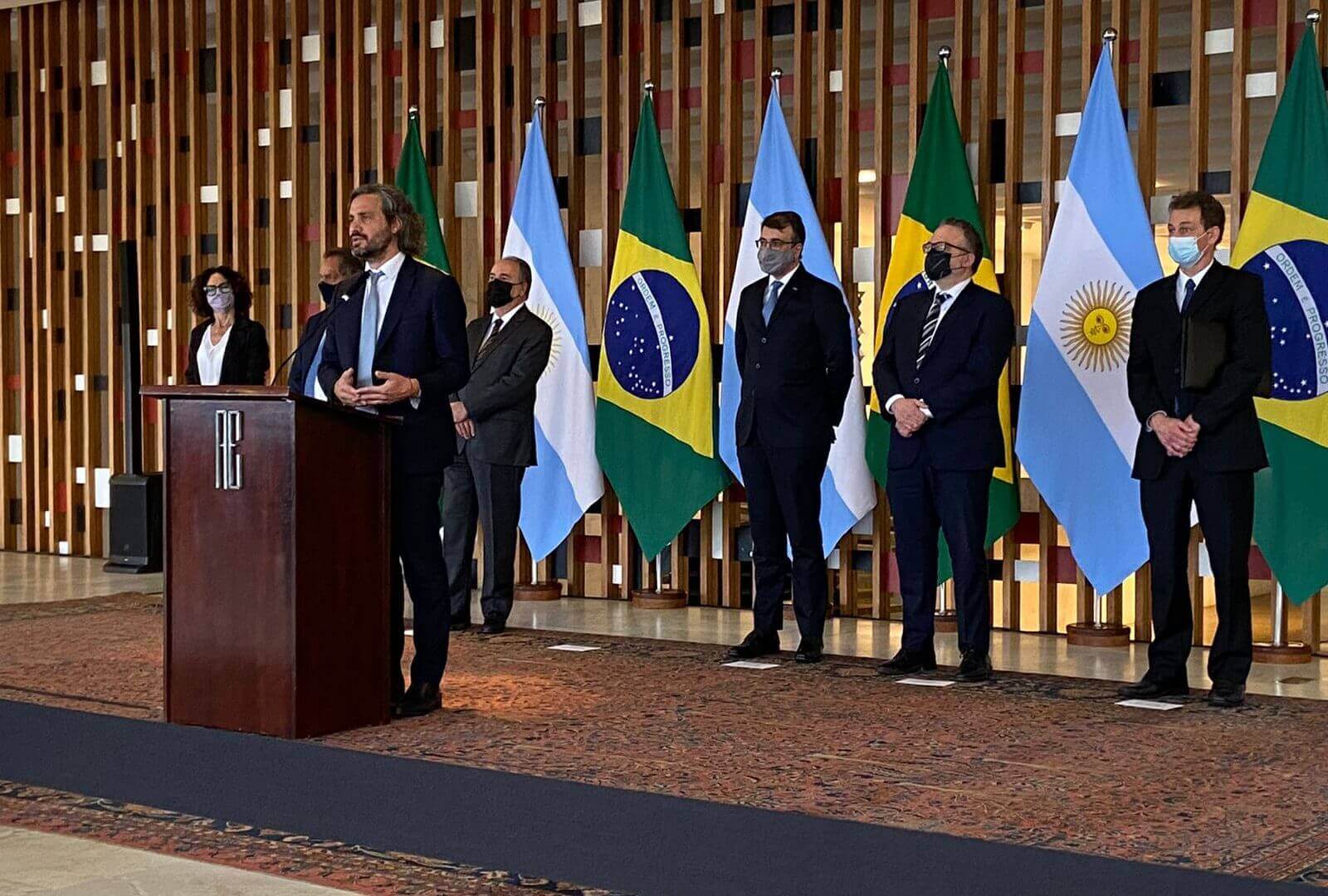On Friday, Brazil and Argentina announced that they had agreed to reduce the common external tariffs (CETs) of regional trading bloc Mercosur on a “very wide universe of products” by 10%. This followed a meeting between Argentine Foreign Minister Santiago Cafiero and his Brazilian counterpart Carlos França in Brasilia. The announcement brings a little closure to months of tensions within the grouping, as Argentina has been rejecting Brazil and Uruguay’s push to make Mercosur more flexible.
França said, “We reached an agreement on the common eternal tariff of Mercosur, which will now be taken to the partners, Paraguay and Uruguay, which will allow a 10% decrease in a very wide universe of products.”
Brazilian President Jair Bolsonaro hailed the agreement, saying that it has preserved the “sense of union” while also indicating the “adaptation of the bloc to the world.”
A joint statement released by the countries read: “[The ministers] highlighted that it is an important step towards increasing the competitiveness of the States Parties and towards strengthening regional production processes, which promote a beneficial insertion of MERCOSUR production in global value chains.”
It added: “They stressed that the understanding reached considers the different needs of the member countries.”
Mercosur Dispute Coverage:
- Uruguay to Pursue Trade Agreement With China Regardless of Mercosur Disapproval
- Brazil and Uruguay Once Again Spar With Argentina at Mercosur Heads of State Summit
- Mercosur Remains Divided Over Common External Tariffs & Trade Agreements With Non-Members
- Uruguay Requests Meeting With Argentina to Resolve Ongoing Mercosur Dispute
- Uruguay and Brazil Escalate Dispute With Argentina Over Mercosur Trade Restrictions
While Brazil and Uruguay have been pushing for a complete removal of the CET, Argentina has argued that such a measure would make domestic industries highly vulnerable. To this end, Foreign Minister Cafiero said that the reduction of the tariffs was made in order to protect the automotive, textile, and footwear industries.
In fact, the Brazilian press has interpreted the deal as a loss, given that Economy Minister Paulo Guedes initially demanded a 50% reduction and then a two-phase 20% reduction.
The agreement follows meetings not only between Brazil and Argentina but also Argentina and Uruguay. Last Tuesday, Cafiero met his Uruguayan counterpart Francisco Bustillo in Buenos Aires to discuss tensions within Mercosur.
Nevertheless, the deal is unlikely to put a complete end to divisions among Mercosur members. Uruguay and Brazil are continuing to push for members to be allowed to enter into unilateral trade deals with third parties.
Moreover, Uruguayan President Luis Lacalle Pou recently announced the launch of free trade negotiations with China, and said that his administration would be pressing ahead with trade talks regardless of Mercosur approval or disapproval.
Brazil, too, has established a Brazil-United Kingdom Task Group to explore trade and investment opportunities.

